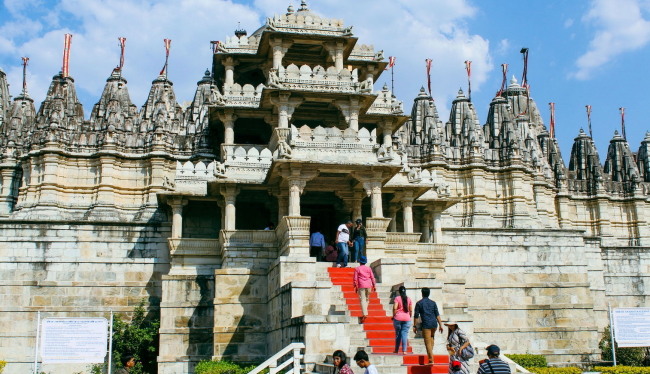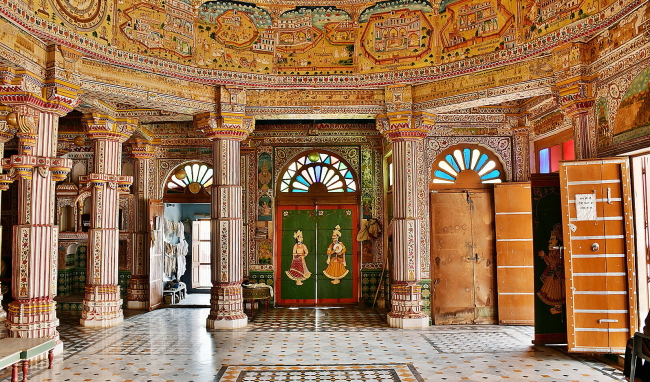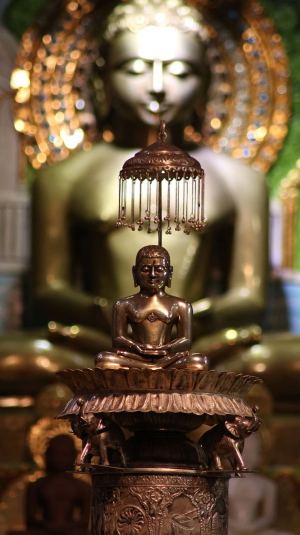TUESDAY, SEPTEMBER 12: Observed by Shvetambar Jains for eight days (beginning September 12, this year) and by Digambar Jains for 10 (beginning September 20, this year), Paryushan Parva means daily fasting, inner reflection and confession. (For Digambar Jains, the festival is also sometimes known as Das Lakshana.) In India, monks and nuns take up residence in Jain centers during this period, providing guidance to the laity; the custom is now practiced in the United States, too.
Each evening of Paryushan, the laity gather for prayer, meditation and readings from holy texts. Many Jains fast during Paryushan Parva, with some drinking only between sunrise and sunset and others consuming only water. At the end of the festival period, any who have fasted are fed by friends and loved ones. The end of Paryushan also brings the grand day when forgiveness is requested from all living beings, and Jains forgive one another in full. It’s believed that all negative karmic matter attached to the soul is overpowered when total forgiveness is asked, resulting in renewal and self-purification.
Did you know? The word “Paryushan” has several meanings. One aspect is explained this way: Pari means “all kinds,” or “fully,” and Ushan means “to burn,” so during this time, a devotee “burns” “all kinds” of karma.
Though known by several different names, Paryushan Parva unites Jains through 10 key virtues: kshama (forgiveness); mardav (humility); arjav (straightforwardness); sauch (contentedness); satya (truth); samyam (control over senses); tappa (austerity); tyaga (renunciation); akinchan (lack of attachment); brahmacharya (celibacy). Together, the 10 virtues represent the ideal characteristics of the soul; by achieving the supreme virtues, the soul has a chance at salvation. Only through these virtues may people realize the sublime trio: “the True, the Good and the Beautiful.” Evil is eradicated, and eternal bliss is realized.


